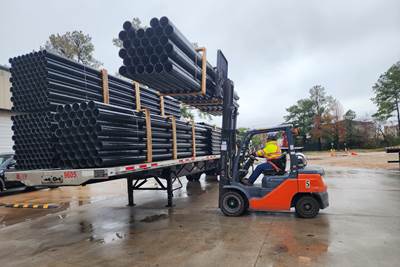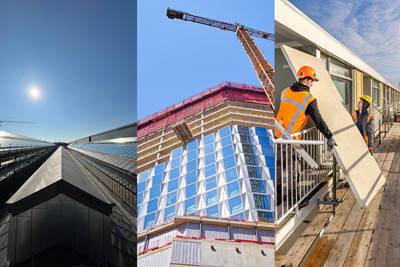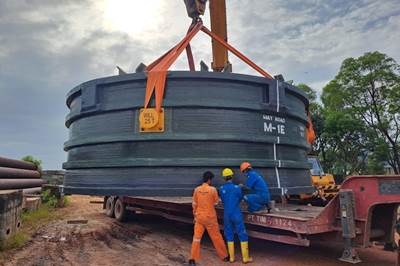Composites Use in Construction
The role of composites in construction (or infrastructure) is varied, ranging from building of bridges and exterior building cladding, to window linneals and timber reinforcements, to reinforcing concrete structures with composite rebar or fiber-reinforced concrete. However they are used, the lightweighting, design flexibility and durability benefits of composites can help speed construction and improve a building’s sustainability score.

Latest Construction Articles
VIEW ALLStrongwell wins Manufacturing Innovation Award for Strongdek composite decking
Two-part design and replaceable cap, enabling high strength and sustainable, cost-effective maintenance and installation, made this FRP construction solution stand out for this year’s SVAM awards.
Read MoreFuture of BioBuilding shares bio-based composite material opportunities, challenges
A series of keynotes, interactive panels and networking will be covered over the two-day online event presented by Ceresana in December, focusing on economic perspectives, innovative developments and practical insights.
Read MoreAward-winning Oder river bridge cuts 500 tons of steel with CFRP tension cables
Developed by Carbo-Link and tested by Empa, the Oder Bridge near Küstrin is a heavy rail bridge using 88 CFRP tension members, enabling 120 km/hr train speeds with reduced weight and emissions.
Read MoreAvient, ReForm Composites accelerate TPC adoption in construction
ReForm’s pultrusion technology with Avient’s composite materials enables curved continuous fiber TPC profiles demonstrated in the PolyDowel infrastructure project.
Read MoreEuCIA launches the European Rebar Council to drive FRP rebar market opportunity
Composite rebar promotion and adoption goals form the backbone of this sectorial alliance, with four working groups to drive the Council’s activities.
Read MoreBedford highlights GFRP screenwall for robust security, containment solutions
The screenwall, designed as perimeter protection, is ideal for secondary indoor or outdoor containment within the wastewater industry.
Read MoreKnowledge Centers

Join us for insights into advanced bonding techniques and welding processes for composite materials to ensure durability and structural integrity.
LEARN MORE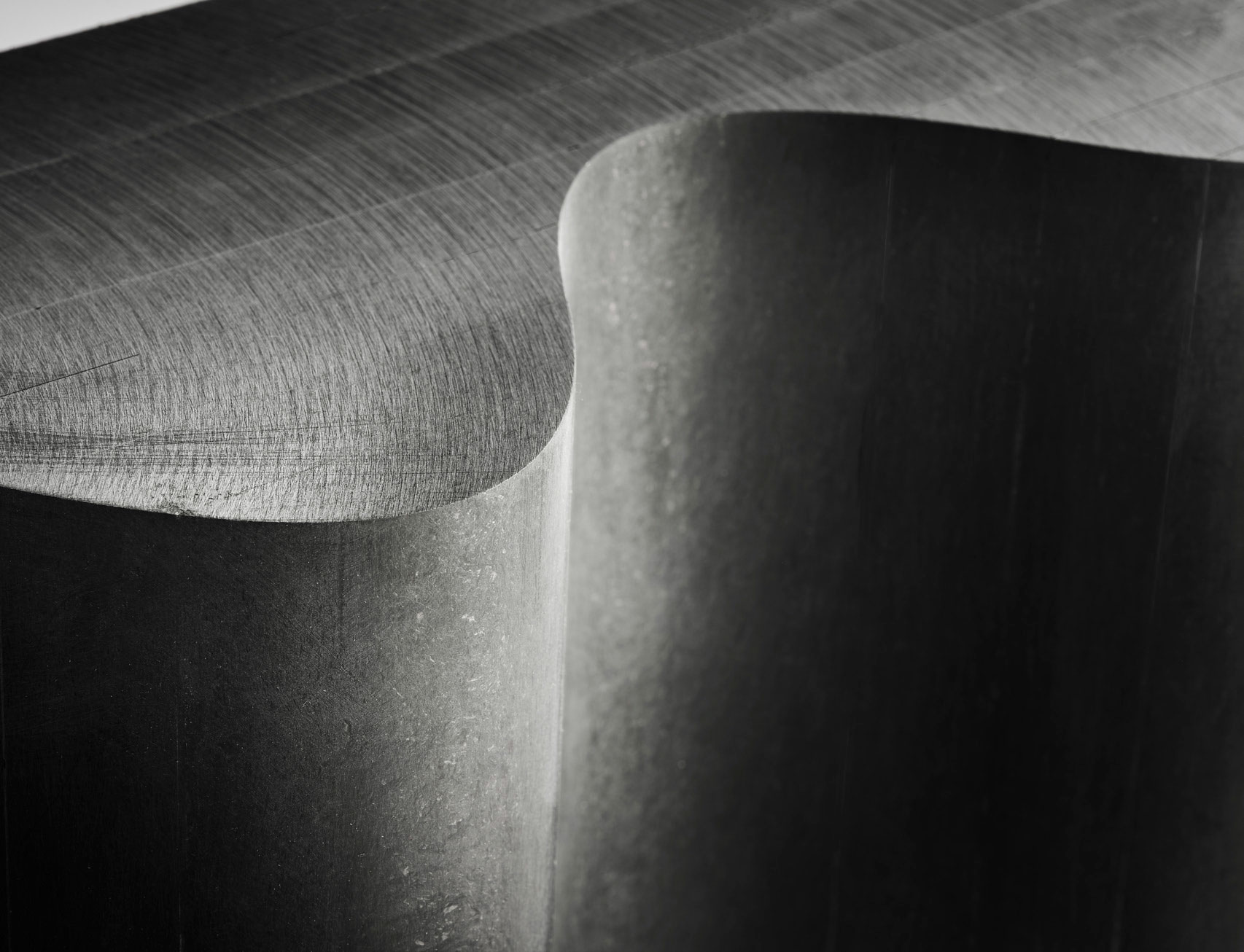
CW’s editors are tracking the latest trends and developments in tooling, from the basics to new developments. This collection, presented by Composites One, features four recent CW stories that detail a range of tooling technologies, processes and materials.
LEARN MORE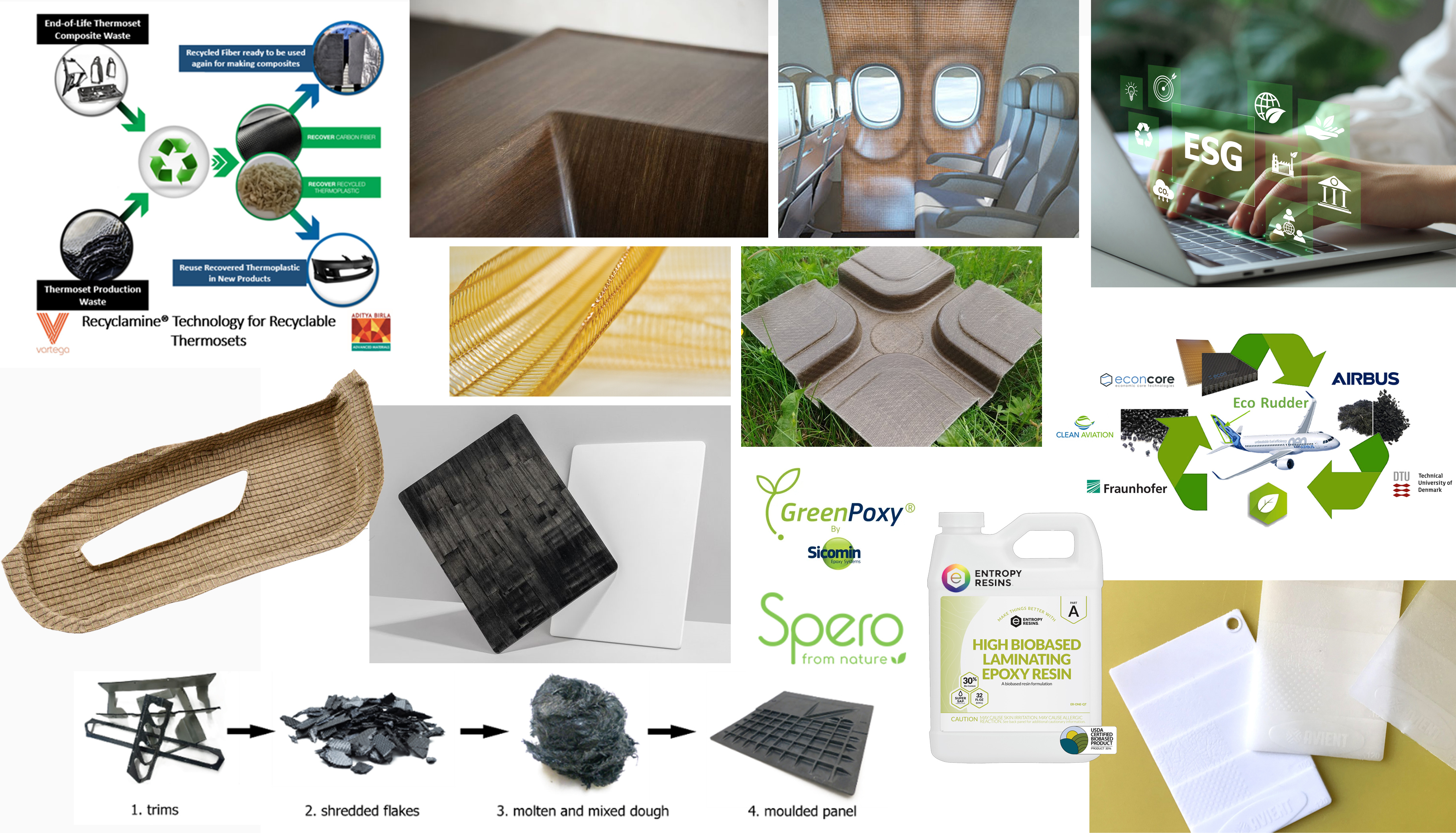
The composites industry is increasingly recognizing the imperative of sustainability in its operations. As demand for lightweight and durable materials rises across various sectors, such as automotive, aerospace, and construction, there is a growing awareness of the environmental impact associated with traditional composite manufacturing processes.
LEARN MORELatest Construction News And Updates
Avient, FSJ Tactical advance ballistic-rated composite wall panels
Fiberglass-reinforced ThermoBallistic panels for facility protection applications are capable of encapsulating projectiles and preventing harmful deflection and ricochet.
Read MoreBIOS MATER project to drive safe, circular and low-carbon construction
Four bio-based products testing materials like bio-based thermoplastics and fiber-reinforced bio-resin composites will be developed and tested under real conditions to prove their performance, scalability and environmental impact.
Read MoreACMA reaffirms GFRP grating standard manual
Official approval from ANSI earlier this year reinforces support for engineering and design innovation when working with fiberglass-reinforced polymer grating.
Read MoreComposites manufacturing, AR visualization and hydraulic presses
CAMX 2025: Dieffenbacher presents a comprehensive range of products and services geared toward construction and infrastructure applications, including customer projects, production lines, AR innovations and hydraulic presses.
Read MorePerformance resins, putties and structural adhesives
CAMX 2025: Scott Bader illustrates its local and global materials supply availability backed by technical support, as well as a novel composite panels development with Armacell.
Read MoreTPC, FRP poles and fire-retardant panels
CAMX 2025: Avient Corp. is bringing its latest composites innovations including Polystrand, GridCore and Hammerhead solutions.
Read MoreFeatured Posts
The potential of rCF in fiber-reinforced concrete
A look at how emerging technologies for FRP concrete provide alternatives to traditionally used steel and glass fibers that are more cost-effective and address the sustainability challenge.
Read MoreComposite SIPs for more affordable, efficient and sustainable buildings
LiteSIP panels and modules enable framing in days, cutting structural labor and total cost by up to 70% and 30%, respectively, while increasing energy efficiency and durability.
Read MoreComposites reinvent infrastructure
Celebrating National Composites Week, CW shares ways in which composites continue to evolve the way we approach infrastructure projects.
Read MoreFiberglass conduit manufacturer grows into new products, infrastructure applications
Texas-based Champion Fiberglass, a five-time CW Top Shops honoree, expands its success in the fiberglass composite conduit market into new applications and products, looking toward future automation and sustainability initiatives.
Read MoreBio-based, fire-resistant composites become mainstream
Projects use Duplicor prepreg panels with highest Euroclass B fire performance without fire retardants for reduced weight, CO2 footprint in sustainable yet affordable roofs, high-rise façades and modular housing.
WatchComposites end markets: Infrastructure and construction (2024)
Composites are increasingly used in applications like building facades, bridges, utility poles, wastewater treatment pipes, repair solutions and more.
WatchFAQ: Construction
Why use composites in the construction industry?
A variety of composite materials are used to build structures such as bridges or bridge decking, window components, storage units, exterior cladding and even entire buildings. Composites are also used to reinforce concrete structures, particularly fiber-reinforced polymer (FRP) rebar as an anti-corrosive replacement to steel rebar.
Composites offer lightweighting, design flexibility and durability benefits, all of which can help speed construction and improve a building’s sustainability score.
Are composites used in construction repair?
Composites are increasingly being used to repair structures built with other materials. Target applications include bridge beams, bridge decks, parking garages and pipelines, including underground systems.
Steel-reinforced concrete can be damaged by seismic events and is commonly compromised by temperature-induced contraction and expansion. This results in cracks, which permit moisture invasion, results in corrosion and spalling (expansion) of the steel rebar. That, in turn, aggravates cracking and leads, eventually, to concrete disintegration followed by structural failure. Composites are increasingly used to repair such structures at significantly less cost than new construction, and also to rehabilitate structures that must bear increasing loads beyond the structure’s rated capacity.
Composites can also be used to repair product pipelines, such as natural gas and petroleum pipes at oil refineries and offshore platforms, and to rehabilitate underground storage tanks without the time and expense of excavation.















